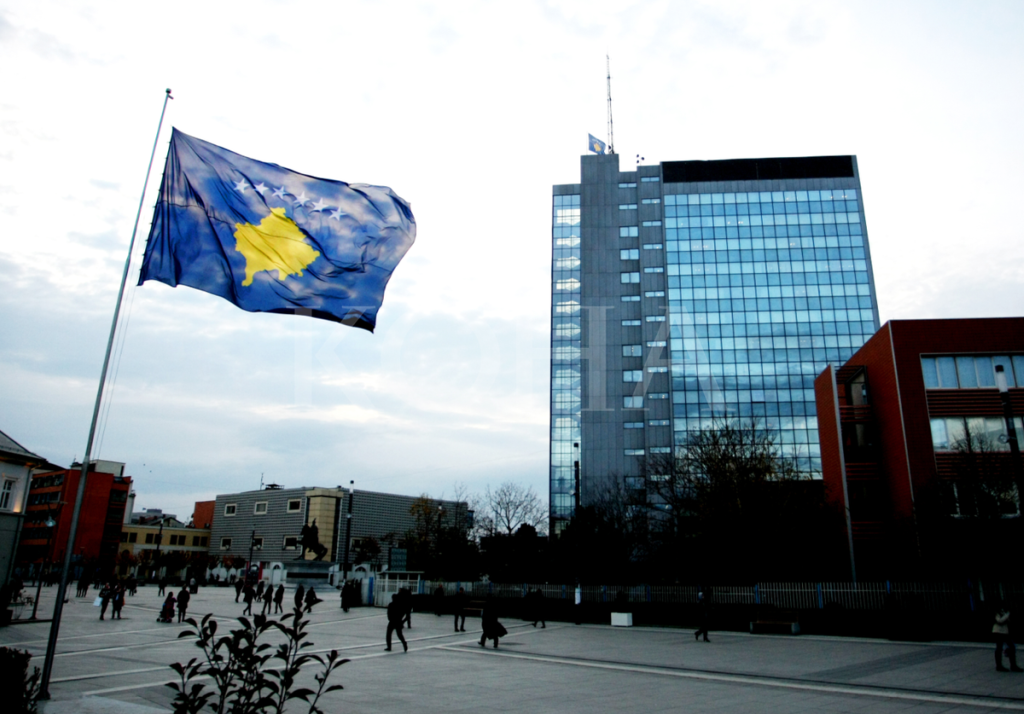
Kosovo is on the verge of reopening its market to Serbian products after significant pressure from Germany, which has warned that continued non-compliance with the Central European Free Trade Agreement (CEFTA) could lead to Kosovo’s exclusion from the Berlin Process. This initiative, aimed at promoting economic growth and fostering EU integration for six Western Balkan nations, has placed Kosovo’s participation in jeopardy as tensions rise over its trade policies.
Germany’s envoy for the Western Balkans, Manuel Sarrazin, has visited Kosovo twice in the lead-up to the Berlin Process summit on October 14, where leaders from the region will gather to discuss the future of regional cooperation. Sarrazin has expressed concerns that Kosovo’s continued ban on Serbian products, imposed in June 2023 for “security reasons,” violates CEFTA rules, a key framework for free trade in the region.
Warnings from Germany
Sarrazin’s message to Kosovo’s Prime Minister, Albin Kurti, was clear: lift the ban or face potential sanctions and exclusion from CEFTA. This warning came amid mounting pressure on Kosovo to align with regional trade agreements, as failure to do so could have far-reaching consequences for its economic and political standing in the region.
German Ambassador to Kosovo, Jorn Rohde, echoed Sarrazin’s stance, emphasizing the importance of free trade in promoting regional stability and cooperation. Sarrazin also hinted that failure to resolve these issues at the upcoming summit could lead to the revival of the ‘Open Balkans’ initiative, an alternative regional framework viewed by some as a competitor to the Berlin Process.
In exchange for lifting the ban, Kosovo has been offered the opportunity to represent itself directly in CEFTA, rather than through the UN Mission in Kosovo (UNMIK), a longstanding point of contention for the Kosovar government.
Regional Cooperation at a Crossroads
The upcoming Berlin Process summit, which marks the 10th anniversary of the EU-backed platform, will be critical in determining the future of regional cooperation in the Western Balkans. However, analysts remain skeptical about whether any substantial diplomatic breakthroughs will be achieved.
Marko Dasic, an Assistant Professor of Political Science in Belgrade, commented to Kosovo Online that while the Berlin Process is important for easing tensions, it is unlikely to result in significant outcomes. “The platform is a consensus among all regional countries, unlike others like the Open Balkans, which are seen as competitive. But it is far from bringing major diplomatic resolutions,” Dasic said.
Kosovo’s Government Defends the Ban
Despite international pressure, Kosovo’s government remains firm in its stance that the ban on Serbian goods was necessary for security reasons. Mimoza Kusari-Lila, leader of the Vetëvendosje parliamentary group, stated that the ban will be lifted when conditions improve, without providing a specific timeline.
However, this position has drawn criticism from both regional actors and international observers who argue that such trade barriers undermine efforts for regional integration and cooperation.
The Economic Stakes
Economic experts, like Safet Grxhaliu from Pristina, emphasize the importance of economic cooperation as a means of bridging divisions in the post-war Western Balkans. Grxhaliu explained that CEFTA, established in 2006, has been instrumental in fostering economic, political, and social integration, and that Kosovo’s involvement in initiatives like the Berlin Process ensures its role as an equal partner in the region.
“The Berlin Process is crucial because, beyond promoting cooperation, it has the financial backing to support projects across the Western Balkans,” Grxhaliu told Kosovo Online. He added that dialogue and the removal of barriers are essential for continued progress, saying, “There is no alternative to cooperation.”
Conclusion
As the Berlin Process summit approaches, Kosovo finds itself at a critical juncture. Whether it can resolve its trade dispute with Serbia and maintain its role in the Berlin Process will depend largely on its willingness to compromise. The stakes are high: exclusion from CEFTA and the Berlin Process would not only isolate Kosovo economically but could also hinder its broader EU integration goals.
The outcome of the summit will reveal whether regional cooperation can triumph over political and security concerns, or if Kosovo’s stance will leave it sidelined in the pursuit of greater Western Balkan integration.
